The International Olympic Committee (IOC) on Tuesday said that no athlete should be excluded from competition on the grounds of a perceived unfair advantage due to their gender as it released a new framework on transgender inclusion.
No athlete should be excluded based on an “unverified, alleged or perceived unfair competitive advantage due to their sex variations, physical appearance and/or transgender status,” the IOC said.
However, the governing body added that it was not in a position to issue regulations that define eligibility criteria for every sport, leaving it up to federations to determine if an athlete is at a disproportionate advantage.
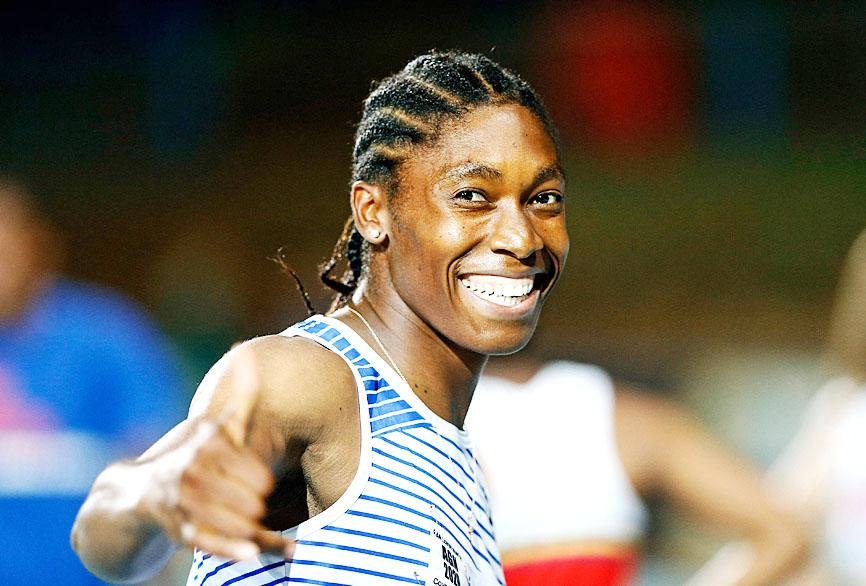
Photo: AFP
Ruling some athletes ineligible in some sports is still expected with safety noted as a specific issue for combat and contact sports.
“The framework is not legally binding. What we are offering to all the international federations is our expertise and a dialogue, rather than jumping to a conclusion,” IOC Athletes’ Department director Kaveh Mehrabi said. “This is a process that we have to go through with each federation on a case-by-case basis and see what is required.”
The 10-point document is to be rolled out after the Beijing Winter Games next year, replacing the guidelines issued in 2015.
It follows years of consultation with medical and human rights experts and, since 2019, athletes directly affected to help draft guidelines promoting fairness and inclusion.
It is published after the Tokyo Olympic Games where the first openly transgender athlete, weightlifter Laurel Hubbard, competed at the Games and defending 800m champion Caster Semenya is among track athletes with intersex conditions and naturally high testosterone levels excluded from their events.
The new framework also moves away from the old policy that said transgender athletes would be allowed to compete provided their testosterone levels were below a certain limit for at least 12 months before their first competition.
The IOC also said sex testing and “invasive physical examinations” used to verify an athlete’s gender were “disrespectful” and “potentially harmful.”
“We really want to make sure that athletes are not pressured or coerced into making a harmful decision about their bodies,” IOC head of human rights Magali Martowicz said.
“Athletes should be allowed to compete but unfair advantage needs to be regulated,” said the IOC, which plans to help fund research into elite performance by transgender and intersex athletes.
“We have not found the solution to this big question,” IOC spokesman Christian Klaue said. “Clearly this is a topic that will be with us for a long time.”
Additional reporting by AP
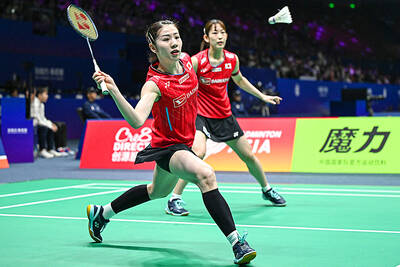
Japanese badminton star Chiharu Shida on Tuesday told Chinese fans to “stop stalking” her, adding that she was “very scared” by the unwanted attention. Shida, who won women’s doubles bronze at the Paris Olympics last year, has a strong following in China partly because of her engagement with the local culture. The 27-year-old, currently competing at the Badminton Asia Championships in Ningbo, China, has been dubbed the “Badminton Goddess” by fans and media. She hit out at some supporters on Tuesday, accusing them in an Instagram post of taking their fandom too far. “Every time we compete in China we always experience the harm
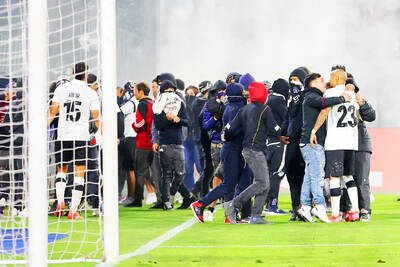
Two people died on Thursday after fans and police clashed outside the Estadio Monumental in Santiago ahead of a game in South America’s Copa Libertadores, Chilean authorities said. The fatalities happened shortly before the match between Chile’s Colo-Colo and Brazilian club Fortaleza, when police blocked about 100 fans when they attempted to enter the stadium. There were conflicting accounts of how the fatalities occurred, with local media reporting that one of the dead was a 13-year-old boy. The other victim was an 18-year-old woman, according to a relative at the hospital where she was treated. The fans died after being caught underneath a
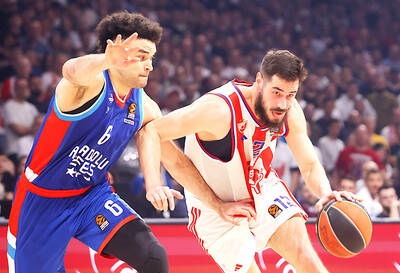
A potential European league could be a gold mine for the NBA as the top-flight North American league looks to muscle its way into a deep pool of talent across the Atlantic Ocean. The NBA is exploring the launch of a European league with world basketball governing body FIBA as a partner, NBA commissioner Adam Silver said last week, with an eye toward a 16-team format made up of 12 permanent clubs and four qualifiers. The continent’s longstanding Euroleague quickly signaled its readiness to enter into talks with the NBA, even as it has balked at the idea of another league in
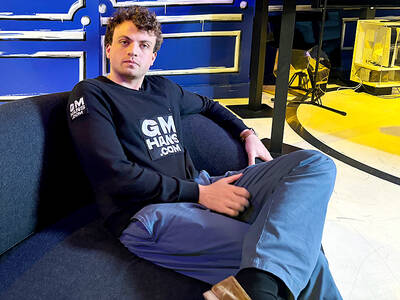
Hans Niemann, the chess grand master at the heart of an alleged cheating scandal, has yet to provide an explanation on his late withdrawal from the Freestyle Grand Slam in Paris. Niemann, who was accused of cheating by world No. 1 Magnus Carlsen in 2023 before the matter was settled outside court, received a wild card for the event, but informed organizers he was pulling out for “personal reasons” less than 48 hours before the start of the 12-player tournament. “I texted him on Friday at 7pm. I said: ‘Hans, we’re already here. Are you here as well?’ And he read the